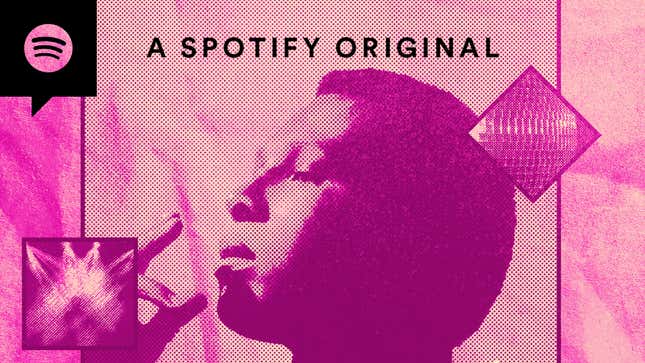Disco Diva Sylvester Moved With an Audaciousness That Resonates Today
The new podcast Sound Barrier explores the unsung life and art of a true American original.
EntertainmentMusic

Sylvester James Jr., better known by his performing mononym Sylvester, was so ahead of his time when he emerged on the ‘70s music scene that culture is still catching up. As a singer-songwriter, he made his biggest splash during the disco era with a trio of Top 40 hits, including the indelible “You Make Me Feel (Mighty Real),” which recently placed No. 2 on Jezebel’s list of the greatest disco songs of all time. He sang in a piercing falsetto and presented an unabashed gayness, usually donning drag. He was queer during a time when it was considered career suicide to be so. In the ‘80s, he rode the post-disco tide, helping to innovate the particularly San Francisco-fied strain of the genre called hi-NRG (“Do You Wanna Funk?,” a collaboration with pioneering producer Patrick Cowley, featured prominently in the 1983 Eddie Murphy vehicle Trading Places). He died of AIDS at age 41 in 1988.
To some, Sylvester is synonymous with disco; to many others, he’s virtually unknown. Enter Sound Barrier, a new Spotify podcast hosted, co-written, and co-produced by writer, musician, and New York University professor Jason King. (Full disclosure: I’ve known King for years, but I also wouldn’t be writing about his show if it were just some bullshit.) Over the course of eight episodes, King and his team trace Sylvester’s history, from his days on the streets of South Central Los Angeles with queer crew the Disquotays, to his work with the San Francisco performance troupe the Cockettes, to his early rock records alongside the Hot Band, to his disco triumphs, and beyond. King shares storytelling duties alongside a host of new and archival interviews from the likes of Patti LaBelle, Martha Wash, Billy Porter, Big Freedia, Sound Barrier co-writer (and film director) Stephen Winter, and Sylvester himself.
Sound Barrier delves deeply into Sylvester’s life—“the motivations for the things that he did and for the creative choices that he made,” King explained in a call with Jezebel earlier this week. He also discussed the performer’s legacy and modern relevance: “Sylvester did many of the things that Lil Nas X is currently doing.” An edited and condensed transcript of our conversation is below.
JEZEBEL: Sylvester is unsung but his story has been told before. In fact, Josh Gamson, who published the biography The Fabulous Sylvester in 2005, is a consulting producer here. What did you aim to do differently with Sylvester’s story?
JASON KING: The book stands, and I think it’s the definitive look at Sylvester’s life at this point. There was an opportunity to do a really entertaining podcast that walks people through Sylvester’s life and explains who he was that exceeds in some way the limitations of what a book can be. On top of that, it felt really important for me to address Sylvester as a musician. He’s often heralded as this groundbreaking cultural figure, which he was, and he deserves his due for that, but he was also an astounding musician. I wanted to really track the development of his music and to also be able to show that the success that he had in the disco era, which was his greatest success commercially, was not a fluke and actually came out of these earlier attempts to convey his musical message around Black musical excellence. He was somebody who was invested in the idea of bringing together a whole bunch of different genres. He could sing jazz and blues and gospel and R&B and rock and everything else, and he didn’t really see a difference between those musics as long as they all had a kind of blues impulse to them in some way.
To know Sylvester is to love him, but there are a lot of people who have no idea who he was. Was it difficult convincing Spotify that he’s a worthy subject?
-

-

-

-

-

-

-

-

-

-

-

-

-

-

-

-

-

-

-

-

-

-

-

-

-

-

-

-

-

-

-

-

-

-

-

-

-

-

-

-








































